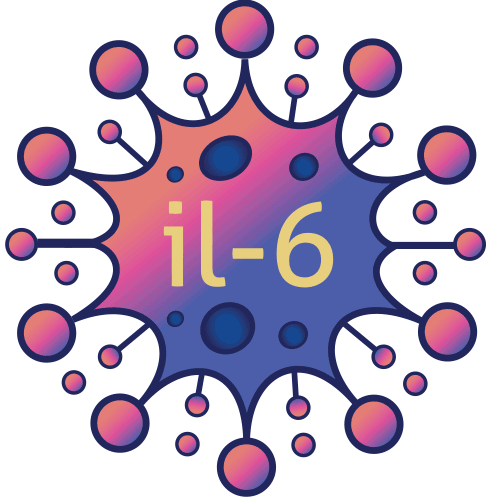Zinc and Lower IL-6 Levels
- From The Mind of AI

- Nov 17, 2024
- 4 min read
Updated: Dec 9, 2024

Zinc is an essential trace mineral that plays a significant role in immune function, enzyme activity, and inflammation regulation. It is well-known for its anti-inflammatory properties and its ability to help reduce Interleukin-6 (IL-6) levels, a key inflammatory marker associated with various mental and physical health conditions. Zinc’s importance extends beyond the immune system, influencing cognitive function, mood regulation, and overall health.
Zinc and Its Impact on IL-6 Levels
Zinc's Impact on IL-6 Levels | Description |
Immune Function Modulation | Zinc helps regulate immune responses by inhibiting the overproduction of pro-inflammatory cytokines, including IL-6. Zinc deficiency can lead to increased inflammation, exacerbating conditions like autoimmune diseases, chronic infections, and mental health disorders. |
Reduction of Oxidative Stress | Zinc acts as an antioxidant, helping to reduce oxidative stress in cells. By minimizing oxidative damage, zinc helps to lower IL-6 levels and prevent inflammatory cascades that contribute to conditions such as heart disease, diabetes, and chronic inflammation. |
Neuroinflammation and Brain Health | Zinc is crucial for cognitive function and mental health. By reducing IL-6 and other inflammatory markers in the brain, zinc helps protect against neurodegenerative conditions and supports emotional regulation. It may also improve symptoms of depression, bipolar disorder, and anxiety. |
Gut Health and Systemic Inflammation | Zinc plays a critical role in maintaining gut integrity. Gut inflammation can increase IL-6 levels systemically. Zinc helps repair the gut lining, reducing inflammation and lowering systemic IL-6, thus improving both gut health and overall well-being. |
Zinc’s Role in Mental Health and Inflammation
Mental Health Condition | Zinc’s Role in Reducing IL-6 |
PTSD (Post-Traumatic Stress Disorder) | PTSD is linked to chronic stress and increased inflammation. Zinc’s ability to modulate IL-6 levels can help reduce neuroinflammation associated with PTSD, potentially improving cognitive function and emotional regulation. |
Bipolar Disorder | Elevated IL-6 levels are often found in individuals with bipolar disorder. Zinc’s anti-inflammatory properties can help stabilize mood by reducing inflammation in the brain and supporting neurotransmitter function, including serotonin and dopamine. |
Schizophrenia | Neuroinflammation, including elevated IL-6, is linked to schizophrenia. Zinc's role in reducing oxidative stress and inflammation may protect against cognitive decline and reduce psychotic symptoms associated with neuroinflammation. |
Generalized Anxiety Disorder (GAD) | Elevated IL-6 is linked to increased anxiety levels. Zinc may help reduce neuroinflammation and stress-induced inflammation, improving mood stability and reducing symptoms of anxiety. |
Zinc’s Role in Cardiovascular and Immune Health
Health Condition | Zinc’s Role in Reducing IL-6 |
Heart Disease | High IL-6 levels are a marker of systemic inflammation and contribute to cardiovascular disease. Zinc helps reduce arterial inflammation and promotes healthy blood vessels by lowering IL-6, reducing the risk of atherosclerosis and hypertension. |
Diabetes | Elevated IL-6 is associated with insulin resistance and inflammation in individuals with diabetes. Zinc supplementation has been shown to improve glucose metabolism and reduce systemic inflammation, lowering IL-6 and supporting blood sugar control. |
Immune Support | Zinc is crucial for a balanced immune response. It helps regulate the production of cytokines like IL-6, ensuring that the body’s inflammatory response is not excessive, which is critical in preventing chronic inflammation during infections or autoimmune conditions. |
Different Forms of Zinc and How They Affect Health
Type of Zinc | Primary Benefits |
Zinc Picolinate | Highly bioavailable, making it one of the most effective forms for immune support and reducing inflammation. It is well absorbed by the body and helps manage oxidative stress and IL-6 levels. |
Zinc Gluconate | Often used in cold remedies; it helps boost the immune system and reduce inflammation. It is also widely available and affordable, making it a good option for general immune health and IL-6 reduction. |
Zinc Citrate | This form is known for its good absorption and is commonly used for supporting digestive health, reducing inflammation in the gut, and supporting overall immune function. |
Zinc Sulfate | This is a cost-effective form often used to treat zinc deficiency. While it may be less gentle on the stomach than other forms, it helps maintain adequate zinc levels to support immune function and reduce inflammation. |
Zinc Orotate | Known for its ability to cross cell membranes more effectively, zinc orotate may be particularly beneficial for targeting neuroinflammation and improving cognitive health. |
Different Ways to Incorporate Zinc Into Your Life
Method | Description |
Zinc-Rich Foods | Foods rich in zinc include oysters, beef, chickpeas, pumpkin seeds, cashews, and quinoa. Incorporating these into daily meals helps maintain adequate zinc levels and reduce inflammation. |
Zinc Supplements | Zinc supplements are widely available in various forms, such as zinc picolinate or zinc gluconate. The recommended daily dose is 8 mg for women and 11 mg for men, but always consult with a healthcare provider before supplementing. |
Zinc Lozenges | Zinc lozenges can be an effective way to deliver zinc during acute immune challenges, such as colds or infections, while also providing anti-inflammatory benefits. |
Topical Zinc | Zinc is commonly found in topical creams and ointments, particularly for skin issues like acne or wound healing. Applying zinc topically can help reduce local inflammation and support skin health. |
Conclusion
Zinc plays a vital role in reducing IL-6 levels, supporting mental health, cardiovascular health, and overall immune function. Whether through diet, supplements, or topical applications, ensuring adequate zinc intake is essential for maintaining inflammatory balance and promoting overall well-being. Given zinc’s broad health benefits, including its ability to modulate immune responses and reduce oxidative stress, it’s a critical nutrient in the fight against chronic inflammation and its related health conditions.
Always consult with a healthcare provider before starting zinc supplementation, especially if you have any underlying health conditions or are taking medications.




Comments